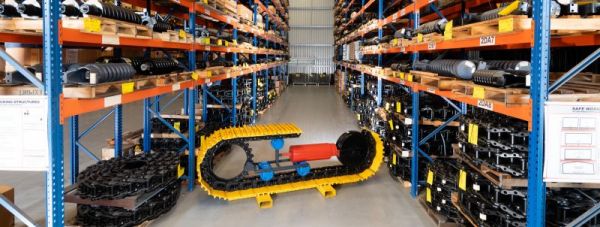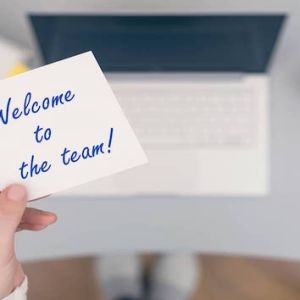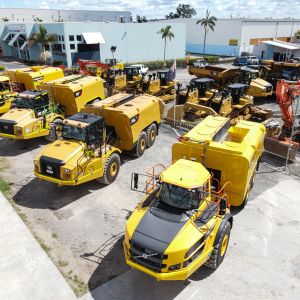![]()
Not all things are made the same, but many are. Just like there are differences between the quality of machines from different manufacturers, the same applies to aftermarket parts. Sadly, some people lump good quality aftermarket parts into the same basket as the rubbish ones, when in fact they could be the exact same parts or even better suited to particular applications than the “genuine” items. Did you know that most hydraulic pumps for different brands of excavators are from a small handful of manufacturers (albeit in different configurations)? The key is to buy your parts from specialists, who know what fits what and use a company that stands behind their products.
So as to steer clear of brand favouritism within the Earthmoving industry, let me give you an example from the car industry that works much the same way. The current generation best selling Ford Ranger is built on the same platform as the Mazda BT50. Early BT50’s ran a Ford engine, but the current model uses a Volvo engine. The upcoming Ford Ranger will share platform with VW Amarok, whilst the Mazda BT50 will be built on the upcoming Isuzu D-Max platform and use the Isuzu engine. It’s easy to become confused in such an incestuous market. Look even deeper, and none of these manufacturers make a lot of their own parts, such as fuel systems, which come from specialist parts manufacturers. These specialist parts manufacturers sell their parts obviously to the OEM car manufacturers as spares, but also to “after market” spare parts specialists. Sometimes this is done in boxes marked with the specialist parts manufacturers name (“Bosch”), sometimes the car company name (“Mazda”), and sometimes as other brand names (“after market brand name”). So if you are after say a fuel injector for your car, do you buy from the car brand manufacturer, the engine manufacturer (the Volvo example above is also a Renault engine), or an agent for the manufacturer (like Repco etc)? Or try your luck on the internet overseas, with no consumer fall back position when the item doesn’t work or isn’t as described.
Having serviced my Jeep Grand Cherokee with the local Jeep dealership since new, when I booked the most recent service last month (due to Covid19 and profitability) the local service centre had closed. Jeep allocated my vehicle to the local Midas service centre, who stamped the service book with a Jeep dealer stamp. They suggested new tyres but weren’t using the OEM recommended ones. I’m not singling out Jeep here, as all OEM’s have to warrant vehicles so long as they are serviced in accordance with OEM service requirements. But it just shows that the “OEM/genuine” service and parts are required/better argument is flawed.

But not all products are equal. Coming back to our industry and using undercarriage as an example, the left and right hand side links supplied to chain manufacturers come from a finite number of foundries, some better than others, and they do more than one grade of steel. The companies that assemble the links brand their products under different labels, some under the Machine Manufacturer logo, some items leave under the link assembly manufacturers brand and others under whatever brand you prefer. Whilst all these products might come from the same factory, they may or may not be the same, as they can be ordered with for instance different brands of seals. So even if you think you are getting the same “Bosch” product, you may not be. The cheaper seals might be fine in for instance a farming application where hours per year are very low and soil conditions are easy but won’t hold up in a construction environment. This is why in some cases prices and quality for what you think is the same product can still vary quite considerably, and why it is imperative to buy only from companies that you trust to know our industry and your requirements.
The same applies to many other product ranges, like Ground Engaging Tools (or GET). You can’t go too far wrong with a lump of steel, right? Wrong. The product needs to suit the application, for instance if the steel is too hard it will simply snap, if it’s too soft it will wear prematurely. Some products have less material, which means they are part worn when they first get put on your machine – so the lower purchase price means you are actually paying more per hour of wear. Design and shape of the edge/tooth also play a part as do other considerations, so just because something fits doesn’t mean it’s the right choice for your machine.
The above highlights why it is important to discuss your parts requirements with an independent parts supplier, not just the OEM. OEM’s only know, and can only offer, their own OEM products – companies like RDW are not limited to only the OEM local supply source. Whether it is hydraulics, undercarriage, GET or other items for an earthmoving machine, sometimes a particular brand of machine has exactly the same widget as another brand of machine, but the dealers charge substantially different prices. That’s why it is so important to talk to specialists such as the people at RDW, because we know what fits what, and will help you get the best value for your particular needs.
As always, onwards and upwards!
Fred Carlsson
General Manager




